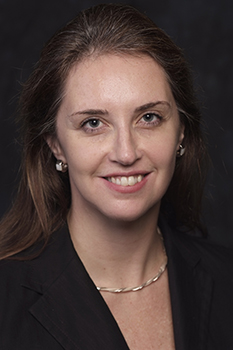Latest News Archive
Please select Category, Year, and then Month to display items
01 March 2023
|
Story Alicia Pienaar
 Prof Mathys Labuschagne is the Head of the Clinical Simulation and Skills Unit within the School of Biomedical Sciences in the Faculty of Health Sciences
Prof Mathys Labuschagne is the Head of the Clinical Simulation and Skills Unit within the School of Biomedical Sciences in the Faculty of Health Sciences
The Dean of the Faculty of Health Sciences, Prof Gert van Zyl, invites you to the inaugural lecture of Prof Mathys Labuschagne, Head of the Clinical Simulation and Skills Unit within the School of Biomedical Sciences in the Faculty of Health Sciences.
Subject: Clinical Simulation: Quo Vadis?
Venue: Auditorium, Equitas Building, Bloemfontein Campus
Date: 8 March 2023
Time: 17:30
RSVP on or before Friday 3 March 2023
Light refreshments will be served after the inaugural lecture.
About Prof M Labuschagne
Prof Mathys Labuschagne is the Head of the Clinical Simulation and Skills Unit within the School of Biomedical Sciences in the Faculty of Health Sciences at the University of the Free State. He completed his MB ChB degree and qualified as an ophthalmologist in 2006.
He developed an interest in health professions education and obtained a PhD in Health Professions Education in June 2012. The title of his thesis was: Clinical Simulation to enhance undergraduate medical education and training at the University of the Free State.
Prof Labuschagne was appointed Head of the Clinical Simulation and Skills Unit at the University of the Free State. The facility is utilised for undergraduate and postgraduate clinical simulation training, as well as interprofessional training and research. He has a special interest in simulation as training tool, precision skills training, and mastery of learning and simulation as tool to prepare students for interprofessional education and collaborative practice.
Prof Labuschagne is part of a multi-institutional consortium that developed the MySkills Medic app. It is a clinical procedural skills application aimed at graduating medical students, interns, and community-service doctors. He was appointed as a member of the Ophthalmology Foundation Education Simulation Subcommittee (affiliate of the International Council of Ophthalmology) tasked with developing a white paper to guide simulation training for ophthalmologists. He is involved in postgraduate supervision for master’s and PhD students in HPE.
CDS receives another international grant from the NIH
2015-12-11
 Dr Carla Sharp |
The Centre for Development Support (CDS) is partner to another international research grant from the National Institutes of Health (NIH) in the United States. The new project follows an earlier project funded by the NIH, which focused on the mental health of orphans and vulnerable children.
The new project is to focus on investigating possible improvements in the mental health and cognitive development of orphaned and vulnerable children aged between seven and eleven years, by means of improved community-based care in the Mangaung Township area in Bloemfontein. The project will stretch over three years and has a budget of approximately R10 million.
“We shall use the Mediational Intervention of Sensitizing Caregivers (MISC) approach and it will be applied by community-based organisations,” says Dr Deidre van Rooyen, Acting Director of the CDS.
MISC applied by caregivers has produced good results elsewhere in the world. “This is the first time MISC will be tested by community-based organisations,” says Prof Lochner Marais of the CDS, who is also the principal investigator in South Africa.
“In addition to working with four community-based organisations in Mangaung, Childline Free State will also be actively involved in the project,” Marais added.
The project is being conducted in collaboration with Dr Carla Sharp as principal investigator at the University of Houston, and Prof Michael Boivin (an international expert on MISC) at the Michigan State University. Dr Sharp was recently appointed visiting professor at the CDS.
“It is indeed a great privilege to be working with the CDS on yet another project,” Dr Sharp remarked, also noting that “the project is preliminary in nature and could evolve into a much bigger research project in future”.